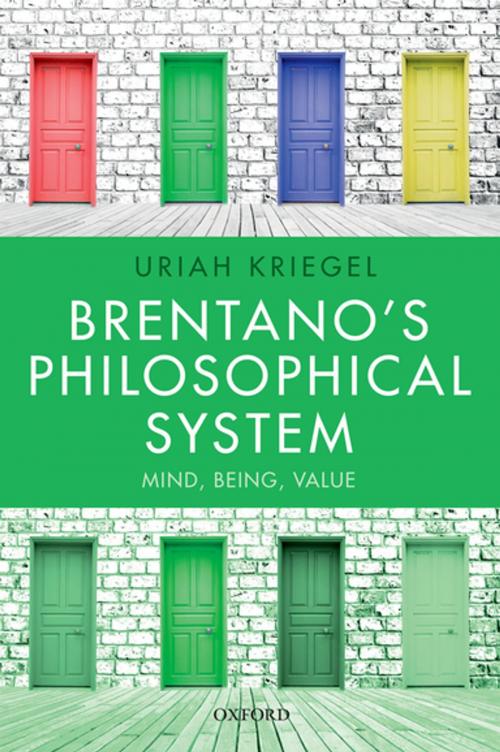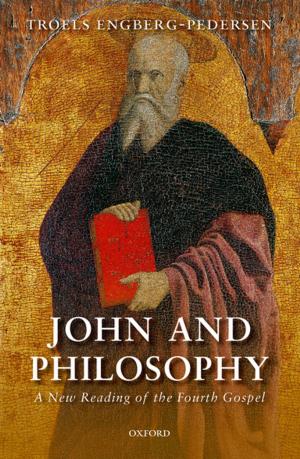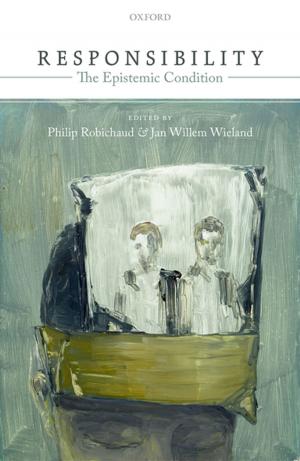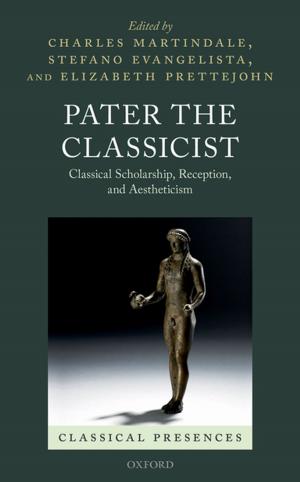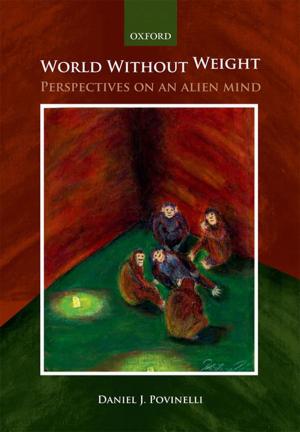Brentano's Philosophical System
Mind, Being, Value
Nonfiction, Religion & Spirituality, Philosophy, Ethics & Moral Philosophy, Mind & Body| Author: | Uriah Kriegel | ISBN: | 9780192509109 |
| Publisher: | OUP Oxford | Publication: | February 13, 2018 |
| Imprint: | OUP Oxford | Language: | English |
| Author: | Uriah Kriegel |
| ISBN: | 9780192509109 |
| Publisher: | OUP Oxford |
| Publication: | February 13, 2018 |
| Imprint: | OUP Oxford |
| Language: | English |
Uriah Kriegel presents a rich exploration of the philosophy of the great nineteenth-century thinker Franz Brentano. He locates Brentano at the crossroads where the Anglo-American and continental European philosophical traditions diverged. At the centre of this account of Brentano's philosophy is the connection between mind and reality. Kriegel aims to develop Brentano's central ideas where they are overly programmatic or do not take into account philosophical developments that have taken place since Brentano's death a century ago; and to offer a partial defense of Brentano's system as quite plausible and in any case extraordinarily creative and thought-provoking. Brentano's system grounds a complete metaphysics and value theory in a well-developed philosophy of mind, and accordingly the book is divided into three parts, devoted to Brentano's philosophy of mind, his metaphysics, and his moral philosophy. The book's fundamental ambition is to show how Brentano combines the clarity and precision of the analytic philosopher with the sweeping vision of the continental philosopher. Brentano pays careful attention to important distinctions, conscientiously defines key notions, presents precise arguments for his claims, judiciously considers potential objections, and in general proceeds very methodically - yet he does so not as an end in itself, but as a means only. His end is the crafting of a grand philosophical system in the classical sense, attempting to produce nothing less than a unified theory of the true, the good, and the beautiful.
Uriah Kriegel presents a rich exploration of the philosophy of the great nineteenth-century thinker Franz Brentano. He locates Brentano at the crossroads where the Anglo-American and continental European philosophical traditions diverged. At the centre of this account of Brentano's philosophy is the connection between mind and reality. Kriegel aims to develop Brentano's central ideas where they are overly programmatic or do not take into account philosophical developments that have taken place since Brentano's death a century ago; and to offer a partial defense of Brentano's system as quite plausible and in any case extraordinarily creative and thought-provoking. Brentano's system grounds a complete metaphysics and value theory in a well-developed philosophy of mind, and accordingly the book is divided into three parts, devoted to Brentano's philosophy of mind, his metaphysics, and his moral philosophy. The book's fundamental ambition is to show how Brentano combines the clarity and precision of the analytic philosopher with the sweeping vision of the continental philosopher. Brentano pays careful attention to important distinctions, conscientiously defines key notions, presents precise arguments for his claims, judiciously considers potential objections, and in general proceeds very methodically - yet he does so not as an end in itself, but as a means only. His end is the crafting of a grand philosophical system in the classical sense, attempting to produce nothing less than a unified theory of the true, the good, and the beautiful.
